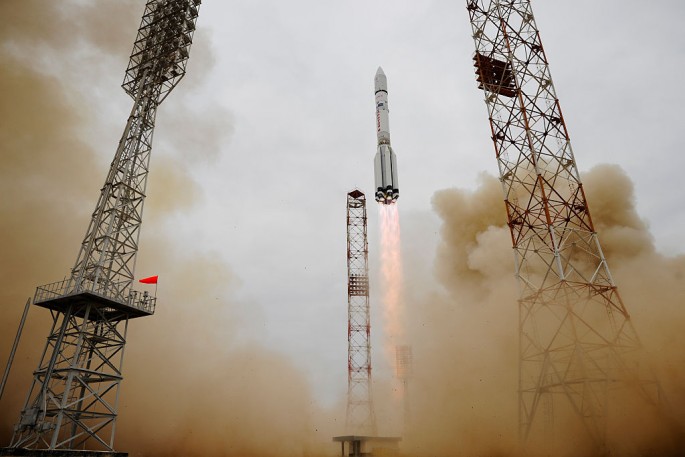Fourth Academy of China Aerospace Science and Industry Corp., the country's biggest missile manufacturer, unveiled plans to expand operations into the international commercial launch market, a senior rocket designer told China Daily.
Hu Shengyun said that the company is mulling on establishing a company that focuses solely on providing commercial launches for both domestic and international clients.
Through the new company, the monopoly established by the China Great Wall Industry Corp., China's only authorized provider of commercial launch services, will be broken.
Since 2009, China Aerospace Science and Industry Corp. has been developing Kuaizhou solid-fuel rockets to provide a low-cost yet quick-response addition to its rocket family for the commercial launch market.
So far, the company has provided for 24 foreign clients 53 Long March rockets, reported to carry 61 satellites.
The first flight took place in 2013, with the Kuaizhou 1 launched at the Jiquan Satellite Launch Center to place an Earth observation satellite in orbit.
The second rocket was launched in 2014 from the same launch center.
"There are at least 50 domestic institutes and companies involved in the development of small and miniaturized satellites, but they have to wait a long time to have them launched," said Hu in an interview with China Daily.
"This is because state-funded satellites always have priority in launch scheduling," Hu, who also serves as a national lawmaker, said. "Moreover, many small developers can't afford the high expenditure."
The need for producers of low-cost and reliable launch vehicles in the international market also presents a huge business opportunity for Kuaizhou rockets, with the 11th version currently in development. According to Hu, the rocket is expected to be launched in 2017.
Kuaizhou 11 will feature a larger diameter and stronger capacity compared to its predecessors. It can put a 1-metric-ton payload into a sun-synchronous orbit at an altitude of about 700 kilometers.
"We estimate that by 2020, the market value of commercial space activities in China will reach 30 billion yuan ($4.6 billion) each year," Hu said. "We plan to produce up to 30 Kuaizhou solid-fuel rockets annually if our business goes well."




























